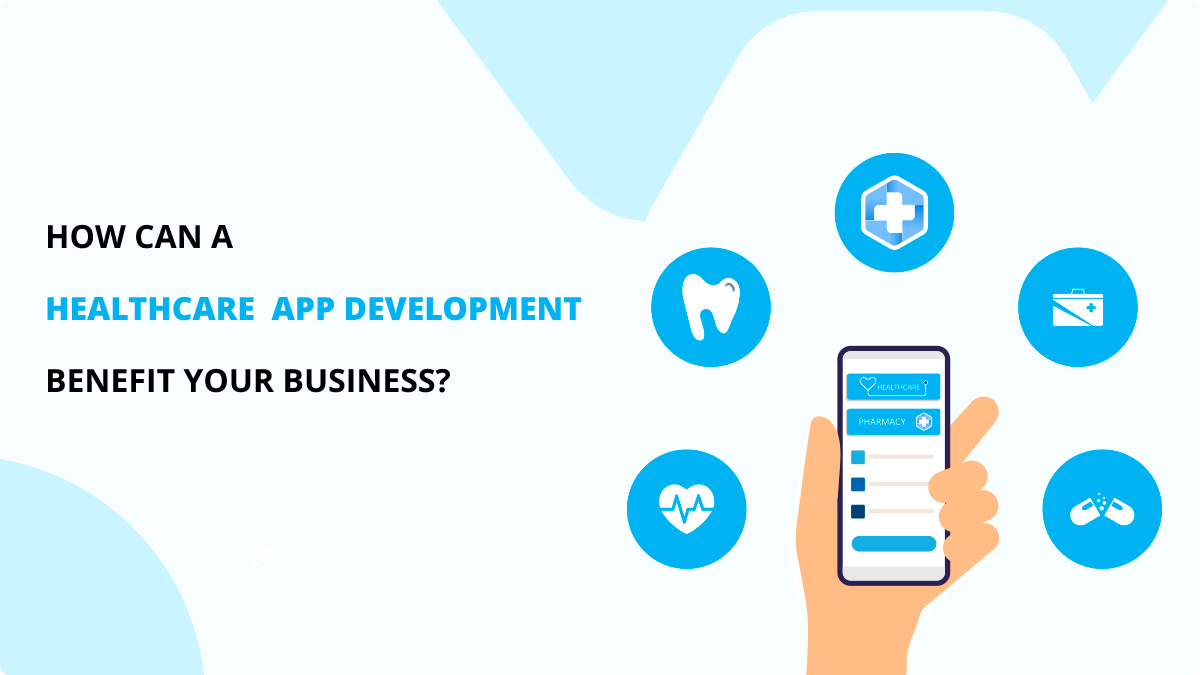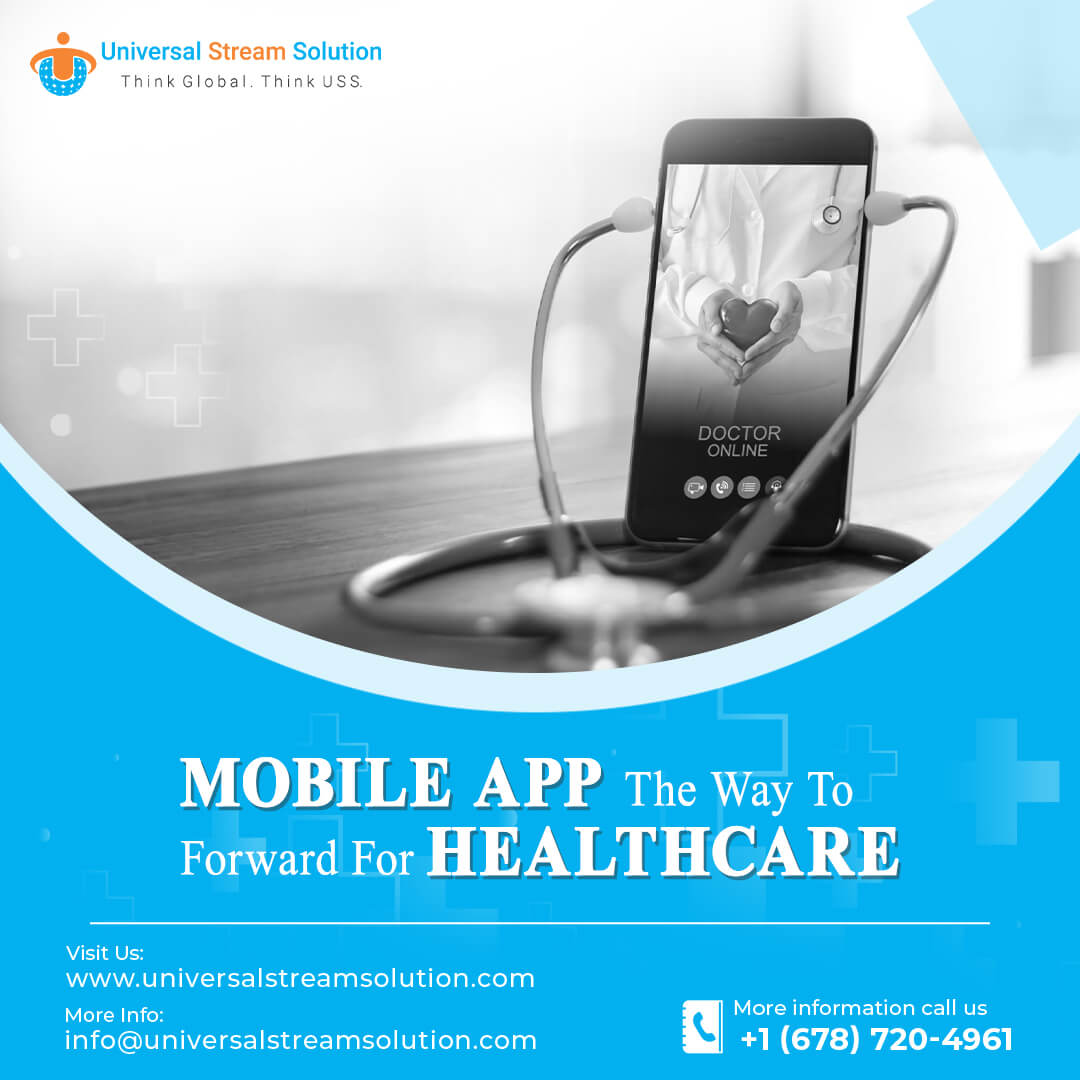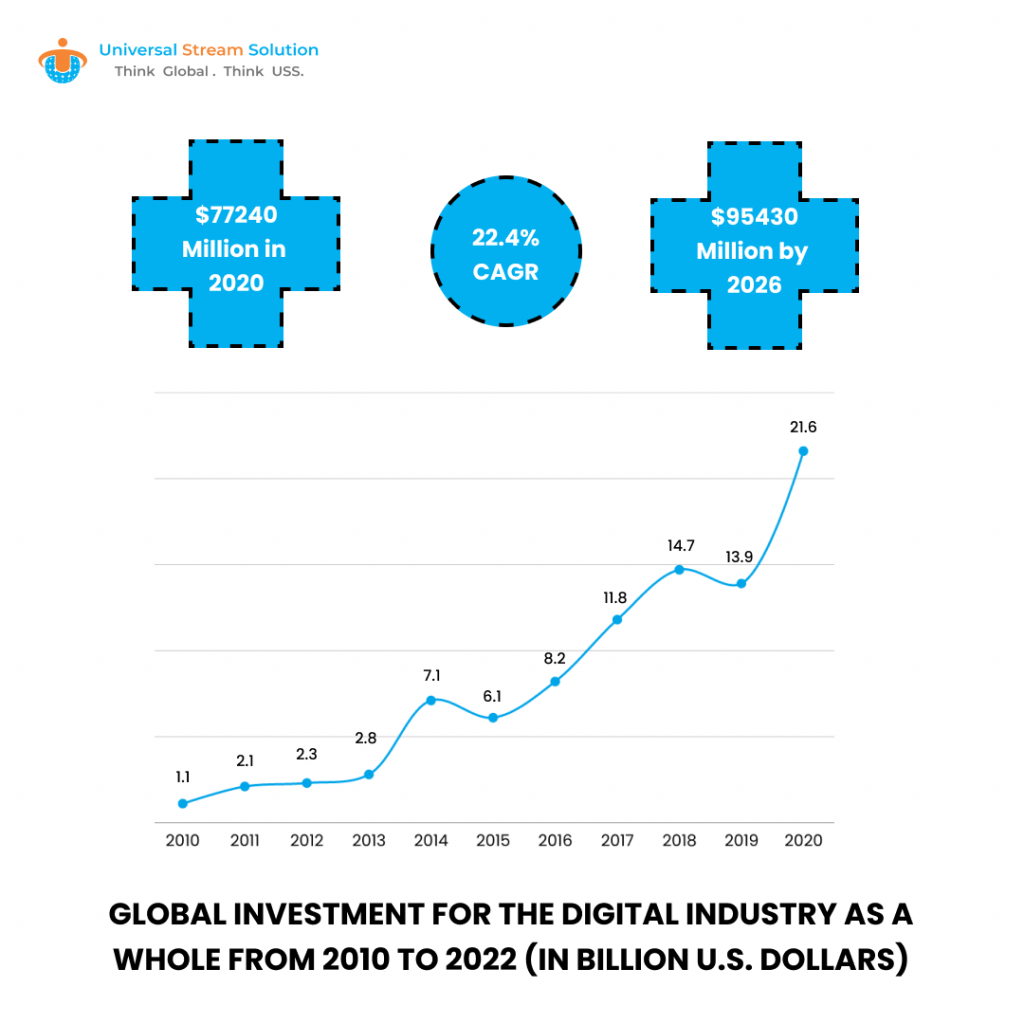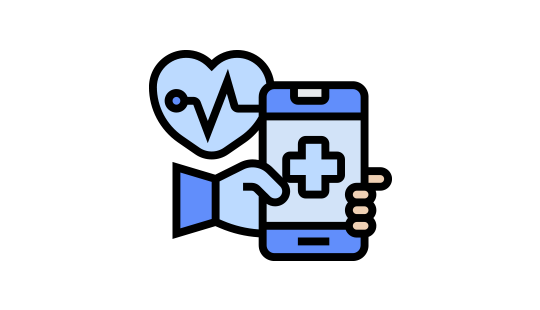As an on-demand healthcare app development company, we have been developing customized healthcare mobile apps for over 6 years. For you to begin your adventure in developing mobile healthcare applications to grow your business, this post will give you detailed insights from our expertise and industry professionals.

In a recent survey, 56% of US doctors reported having talked with a patient about an app or digital program relevant to their diagnosis or treatment in the previous year.
Before discussing the many advantages of developing a mobile app for your company, it is important to understand how healthcare systems throughout the world are preparing for digitization one app at a time.
It is important to understand how the healthcare sector has changed over time and how digitalization will shape healthcare in the future in order to recognize how a mobile app may help your healthcare business.
A major element driving the market expansion is anticipated to be the growing use of smartphones worldwide, together with the plethora of health and fitness-related smartphone applications.
Growth Factors for the Healthcare App Development Market

More consumers are choosing to download health-related apps for their phones. They want to be able to choose how they obtain healthcare on an individual basis. The creation of healthcare apps has increased for a number of key reasons, including:
-
The Growing rate of diseases linked to lifestyle
The rate of numerous such chronic illnesses including diabetes and hypertension, which require ongoing monitoring, is rising.
-
Health care Laws
The cost of healthcare systems is rising. For instance, it is anticipated that U.S. healthcare spending will increase at an average annual rate of 5.4% from 2020 to 2028 and reach $6.2 trillion by that year.
Additionally, a shortage of medical professionals is a global trend. In the United States, a million nurse shortage is anticipated by the year 2020. Only 150,000 medical professionals in India care for roughly a billion people.
The need to shorten lengthy wait times to access healthcare facilities encourages the development of medical apps. For instance, roughly a third of Canadian patients must
-
Increasing use of smartphones
By 2025, it is anticipated that there will be 5.86 billion distinct mobile subscribers worldwide. By 2025, when the world’s population is expected to reach 8.1 billion, 72.3% of the population will be mobile customers.
-
Technological advancements
Big data, artificial intelligence, and other technologies are currently propelling the growth of medical innovation globally, enabling a fresh method of conducting medical research. Inventions that have the potential to enhance healthcare quality and lower rising costs are more effective thanks to innovations that foster the circumstances for such discoveries.
-
The use of medical applications by medical practitioners to further their careers
80% of doctors, according to Research2Guidance, utilize medical applications to improve their work.
-
The population on the planet is aging
UN predictions state that 22% of the world’s population will be retired by 2050. Older persons have a higher risk of developing chronic illnesses and require more medical attention.
Let us refresh your memory with a few statistics about digital healthcare:

- Precedence Research estimates that the worldwide digital health market will develop at a CAGR of 19.2% from 2022 to 2030, from a value of USD 270.60 billion in 2021 to USD 1354.68 billion by 2030.
- Healthcare is one of the greatest sectors in the United States, with a $2.5 trillion industry each year
- The largest and fastest-growing sector internationally and in the United States is healthcare. For instance, employment in healthcare occupations is predicted to increase by at least 16% between 2020 and 2030.
Factors affecting the growth of the Digitization of the Healthcare Industry
- In order to learn more about a specific illness or medical issue, 66% of internet users search online.
- Health-related Google searches make up about 7% of all searches.
- Google claims that search generates 3 times as many visitors to hospital websites as non-search.
- Every day, 70,000 searches for health-related terms are made.
- Seventy-three percent of Americans (73%) use the internet to research health-related topics.
We already know that mobile health apps are popular, but we have yet to determine the advantages of mobile apps in healthcare for both patients and medical personnel.
How could perhaps mobile healthcare applications benefit patients?
Millions of individuals worldwide already use smartphones and tablets as mobile diagnostic tools. Various disorders are treated using mobile medicine. The aid of technology, it’s a terrific method to preserve health and stay in good physical and mental form, especially in times of social isolation.
Both doctors and patients can benefit from mobile health applications. They appear to have a bright future ahead of them, despite the fact that there are still some problems. Check it out:
1. Telemedicine
Patients’ interactions with doctors are improving as a result of mobile devices. Using technologies that offer video and phone conversations, the doctor can now recommend a course of therapy or a particular operation. After leaving the clinic, a patient can download certain apps to their smartphone to continue their recovery at home.
2. Data monitoring and measurement
Your smartphone can track your heart rate, breathing rate, sleep, physical activity, and more while communicating with medical equipment. According to a Gallup survey, 45% of Americans have used fitness trackers or other smartphone apps in the health and fitness area. Additionally, 20% have experimented with or are now utilizing health and wellness applications.
3. Making and arranging appointments
A medical clinic’s patients can more easily communicate with the staff and schedule appointments thanks to a mobile app that was developed for the facility. Making an appointment or talking about a diagnosis with a doctor over the phone can be awkward for many individuals. They are safeguarded from this discomfort by a smartphone application.
4. For the Purpose of Education and Training
Some mobile applications make it easier for practitioners, interns, and medical university students to do their work. Doctors have a significant amount of information to remember. They can refresh their expertise or pick up new skills via mobile apps. Medscape Mobile, Human Anatomy Atlas, and Brainscape are the three most well-liked learning applications for medical students.
5. Improved Health through Wearable and Other Devices
You may have noticed the development of wearable technology in the form of fitness bands in the healthcare sector. Our cell phones’ health apps connect our fitness bands to them. These bands assist in tracking activities like running steps, heart rate, and diet checks.
In addition, wearable technology helps the healthcare sector by giving patients and physicians real-time access to their electronic health records, providing patient history, and much more. The state of anyone can also be indicated by a number of gadgets, including those that measure glucose levels, heart rate, and blood pressure.
6. Reduce the burden of Medical Bills
The conventional medical payment process was annoying. To pay, there were long lines of people. But an effective portion of the expenses has now become possible thanks to mobile healthcare apps. Customers can make quick and simple payments using highly secure payment mechanisms in mobile healthcare applications.
Final Thoughts
Whether you are a business or an individual, this is a fantastic time to take advantage of the mHealth potential.
In the upcoming years, one of the major trends in the development of healthcare technology is going to be mobile medicine. Additionally, it has the potential to improve the accessibility and innovation of healthcare. Technologies have made it possible to drastically alter not only the healthcare sector but also how diagnoses and treatments are carried out as well as the underlying principles that govern how people live their lives. As a result, one of the industries with the greatest growth is mHealth.
Based on the above-mentioned information, it is clear that healthcare applications are a tremendous help to the healthcare system. Benefits include the ability to locate doctors, manage medical issues, and get data on medications and other types of medical care or treatments.
As you can see, developing a healthcare app requires a highly qualified approach. You are unlikely to be able to handle the challenges you may encounter on your own. The ideal approach, in this case, is to hire an experienced team whose members are familiar with every aspect of such a complicated procedure.
Now is the ideal time to contact a healthcare app development business if you have been thinking about doing so.
